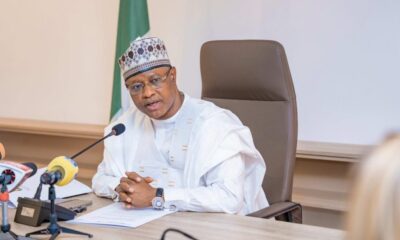Business
Post-Eid Price Surge: Northern Nigeria Struggles With Soaring Tomato And Pepper Costs
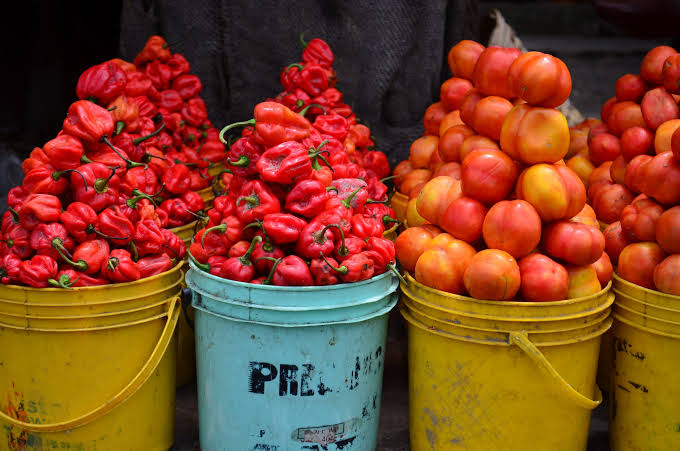
Despite being in season, the prices of tomatoes and peppers in Northern Nigeria have soared to unprecedented levels, leaving residents grappling with the financial burden.
Following the Eid-il-Kabir celebrations, the cost of these essential cooking ingredients has skyrocketed, causing widespread concern among consumers.
Reports from major markets across Kaduna, Gombe, Nasarawa, Kogi, Adamawa, Taraba, Benue, and Sokoto indicate that prices continue to climb.
For instance, in Lafiya, Nasarawa State, a basket of tomatoes now sells for N65,000, up from N17,000 in January. Similarly, a bag of pepper that cost N10,000 now goes for N52,000.
In Kogi State, prices are equally steep, with a dustbin basket of tomatoes priced at N11,000 and a big basket between N100,000 and N120,000.
Adamawa State faces similar challenges, with restaurant operators and families struggling to afford fresh tomatoes and peppers. Traders blame the high transportation costs and insecurity for the reduced supply.
In Jalingo, Taraba State, the situation is equally dire. The price of tomatoes has jumped from N200 to N500, and pepper from N150 to N400.
Consumers across Northern Nigeria are feeling the pinch, with many finding it difficult to afford basic meal ingredients. As the cost of living rises, the call for government intervention becomes more urgent.
Business
the $15.6 Billion Abidjan-Lagos Corridor: West Africa’s Game-Changing Highway for 75% of Regional Trade
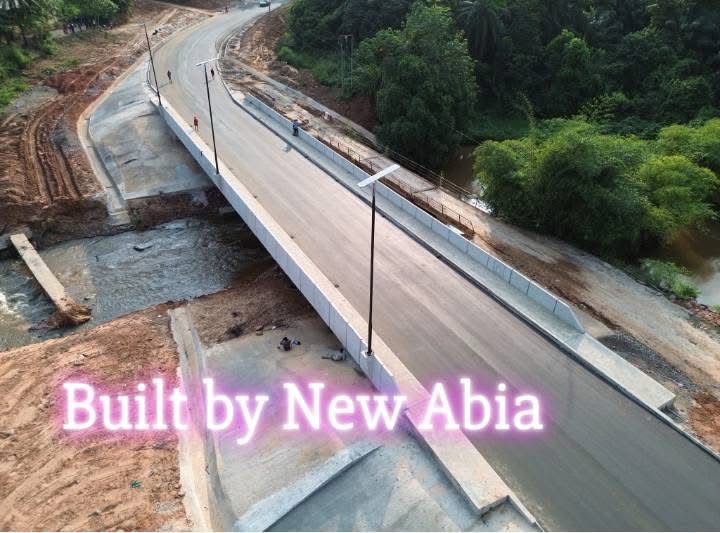
The ECOWAS Commission-managed Abidjan-Lagos Corridor Highway is not just another project—it’s the most significant trade infrastructure investment in West African history.
Spanning 1,028km across five nations and supported by the African Development Bank Group and European Union, this corridor connects the economic powerhouses of Côte d’Ivoire, Ghana, Togo, Benin, and Nigeria, which collectively make up 75% of the region’s economic activity.
This project tackles head-on the physical bottlenecks that have long stifled regional integration in West Africa, with a staggering potential impact: $16 billion in added value, 70,000 direct jobs, and 160,000 indirect roles. By linking urban hubs that will serve 173 million people by 2050, this highway is fundamentally redrawing West Africa’s economic map.
The successful completion of this highway will help to significantly reduce the cost of cross-border logistics, targeting the 15-20% price inflation from poor infrastructure and the up to 72-hour border delays that plague truckers. The result will be a predictable, efficient transport artery—the essential foundation for businesses to scale across ECOWAS and compete effectively under AfCFTA.


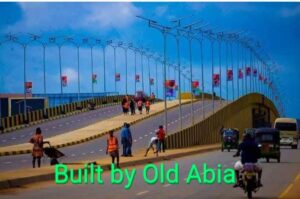
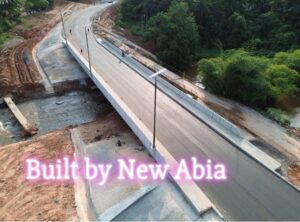
The strategic play here is clear: this corridor is West Africa’s competitive answer to shifting global supply chains. It provides the logistics backbone needed to attract manufacturing investment and drive export diversification far beyond commodities.
Business
Dangote Refinery reduces fuel price nationwide, provides update on petrol distribution
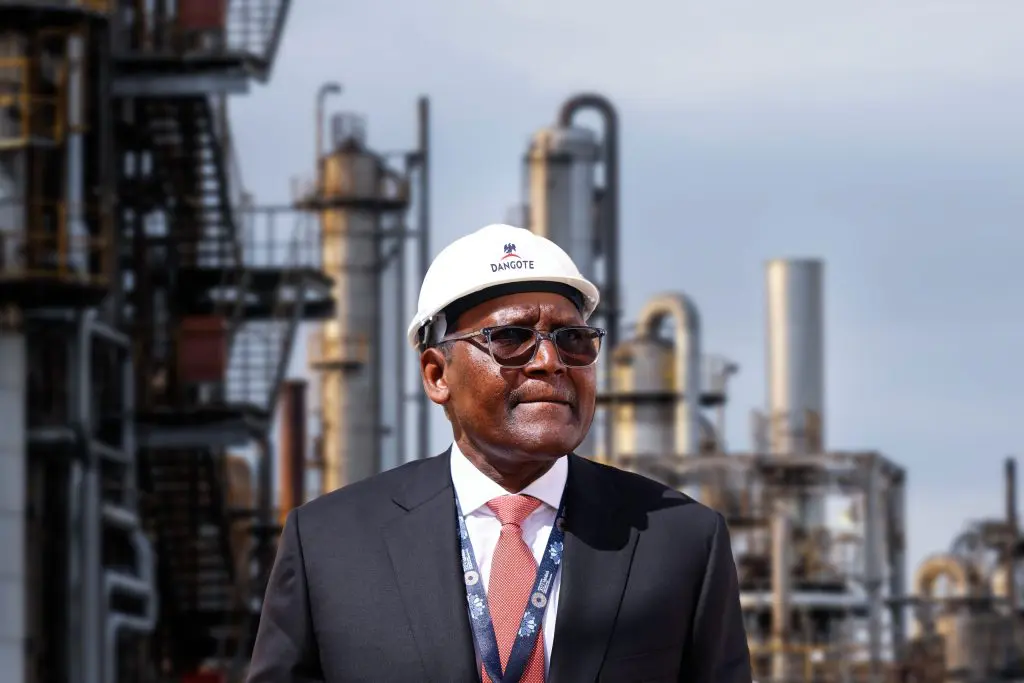
Dangote Refinery has reduced its premium motor spirit retail price nationwide.
This is as it announced Monday, September 15, 2025, as the new date to begin the direct petrol distribution initiative.
The initiative, which Dangote Group had earlier announced would kick off on August 15, 2025, would see the $20 billion plant distribute petrol and diesel to consumers with its 4,000 compressed natural gas trucks at zero logistics cost.
The 650,000-barrel-per-day refinery said its new gantry price is N820 per litre, the same price announced last month.
The company, which is currently in a face-off with the Nigerian Nigeria Union of Petroleum and Natural Gas Workers (NUPENG), disclosed this in a fresh price template released by Dangote Group on its X account.
With the new price template, in Lagos, Oyo, Ogun, Ondo, and Ekiti, Dangote Refinery’s petrol retail price stands at N841 from N860 per litre.
In Abuja, Edo, Delta, Rivers and Kwara states, the largest African refinery’s retail price is N851, down from N885 per litre.
This means that Dangote Refinery will deliver its petrol directly to willing consumers in Lagos and the South-west states at a reduced retail price of N19, while in Abuja, North Central, and the South-South, it will be a N34 reduction.
It stressed that the new price template and direct fuel distribution scheme are expected to take effect on Monday, September 15, 2025.
Meanwhile, Ekwutosblog reports that the Dangote Refinery price template is not binding on petroleum marketers and retailers except MRS and its other distribution partners.
NUPENG on Thursday announced that it may return to strike against Dangote Group, alleging that the company reneged on its recent resolutions.
However, Dangote Group said it respects the voluntary membership of unions by its workers.
Business
5% fuel surcharge: Nigerians going through so much already – ADC chieftain
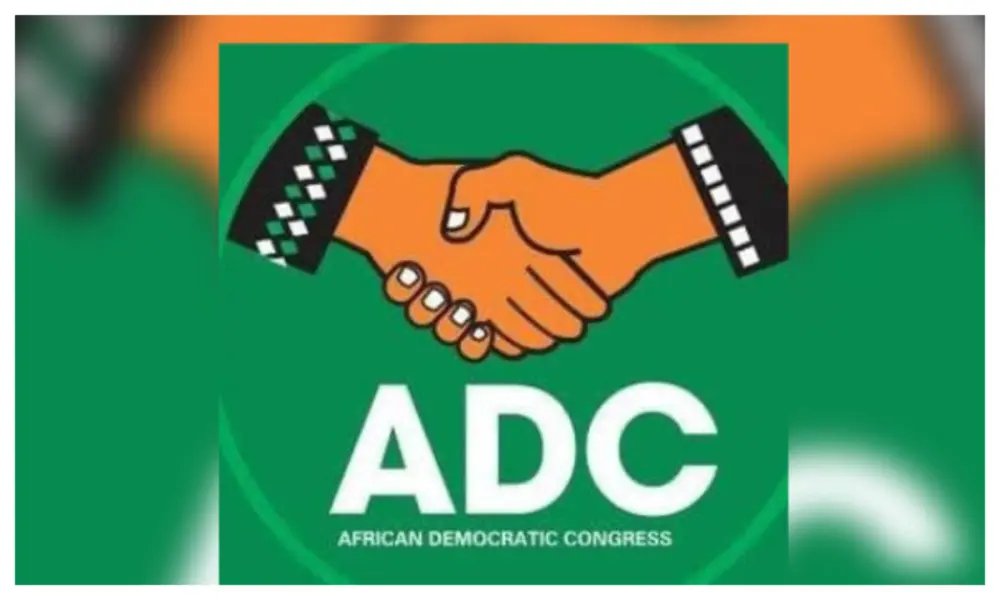
A chieftain of the African Democratic Congress, ADC, Chille Igbawua, has slammed the proposed 5% surcharge on fuel.
Featuring on ‘The Morning Brief’ on Channels Television on Thursday, Igbawua said the removal of subsidy on the product has already put pressure on Nigerians.
He stressed that with the removal of fuel subsidy, the government ought to scrap the proposed 5% fuel surcharge.
“So, an ADC government come 2027, as we believe, is going to introduce measures that will cushion the effect of the removal of the subsidy and then manage it because you remove subsidy, you have money coming in, but you’re not telling anybody what you’re doing with the money, and then you want to introduce a 5% tax on fuel at the pump.
“Countries that are taking this pump tax are taking it because they’re paying subsidies. Now, if you’re not paying subsidies, why do you go back and tax again? Because you’ve already removed the subsidy. So, what’s the benefit of being a citizen in an oil-producing economy,” he asked.
Ekwutosblog recalls that President Bola Tinubu, during his inauguration in May 2023, removed subsidies on fuel, saying the country could no longer afford them and would instead use the monies to fund infrastructural projects.
That development pushed the cost of the essential commodity from less than N200 per litre to close to N1,000, depending on the part of the country.
Two years after the move, Igbawua has accused the Federal Government of poorly managing the funds from the removal of fuel subsidy.
-

 Politics11 months ago
Politics11 months agoMexico’s new president causes concern just weeks before the US elections
-
Business11 months ago
US court acquits Air Peace boss, slams Mayfield $4000 fine
-

 Trending11 months ago
Trending11 months agoNYA demands release of ‘abducted’ Imo chairman, preaches good governance
-
Entertainment11 months ago
Bobrisky falls ill in police custody, rushed to hospital
-
Entertainment11 months ago
Bobrisky transferred from Immigration to FCID, spends night behind bars
-

 Politics11 months ago
Politics11 months agoRussia bans imports of agro-products from Kazakhstan after refusal to join BRICS
-

 Politics11 months ago
Politics11 months agoPutin invites 20 world leaders
-
Education1 year ago
GOVERNOR FUBARA APPOINTS COUNCIL MEMBERS FOR KEN SARO-WIWA POLYTECHNIC BORI











